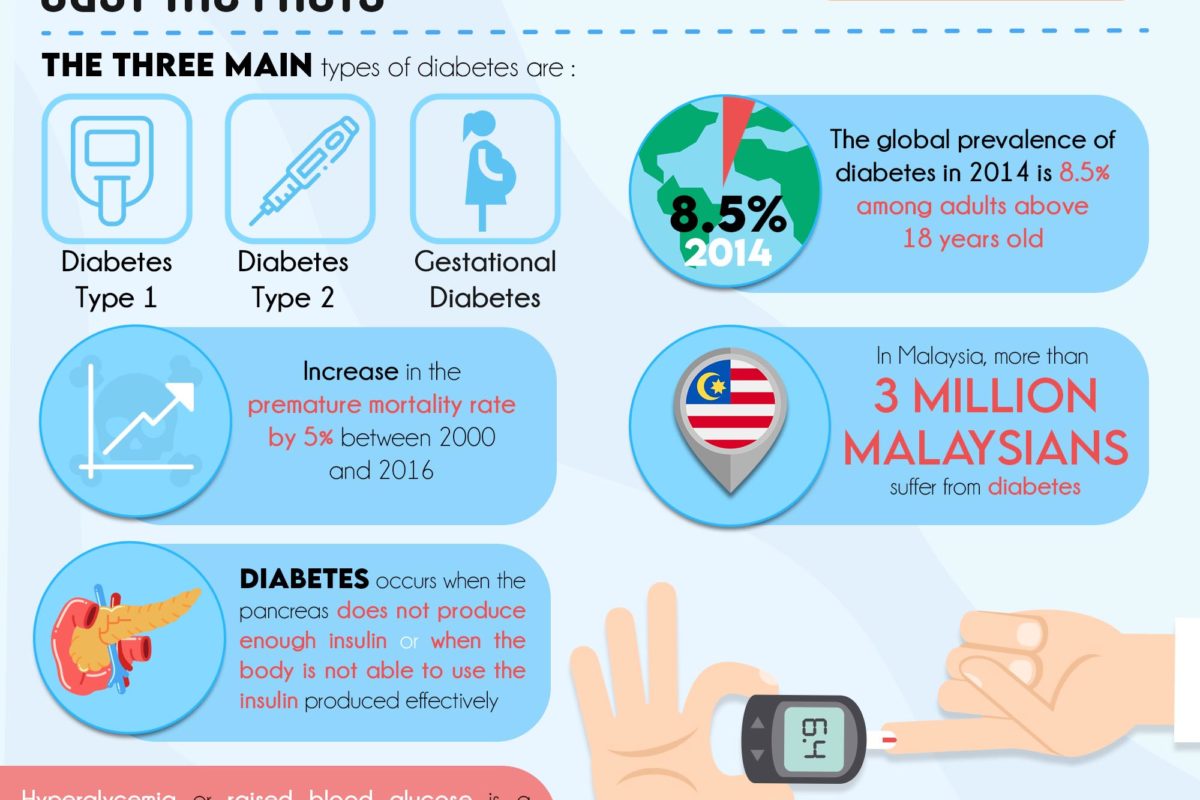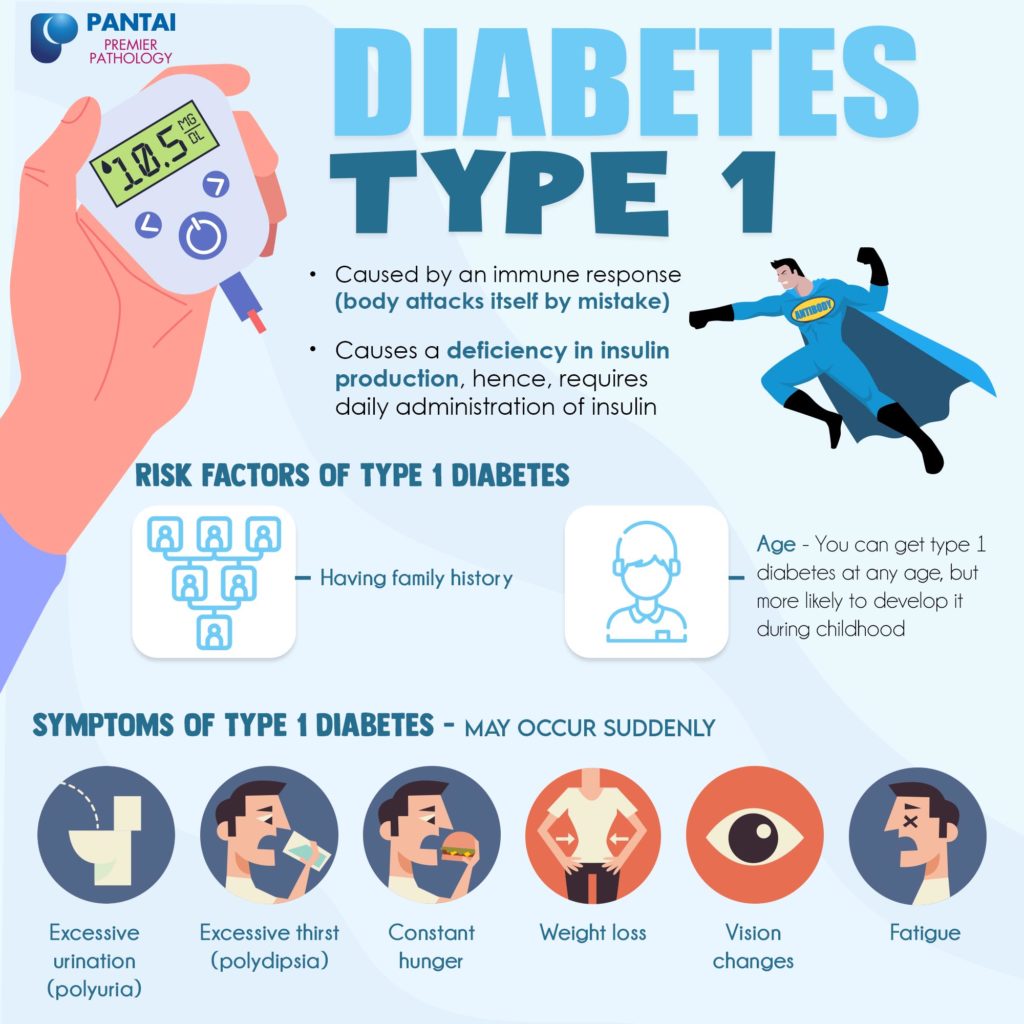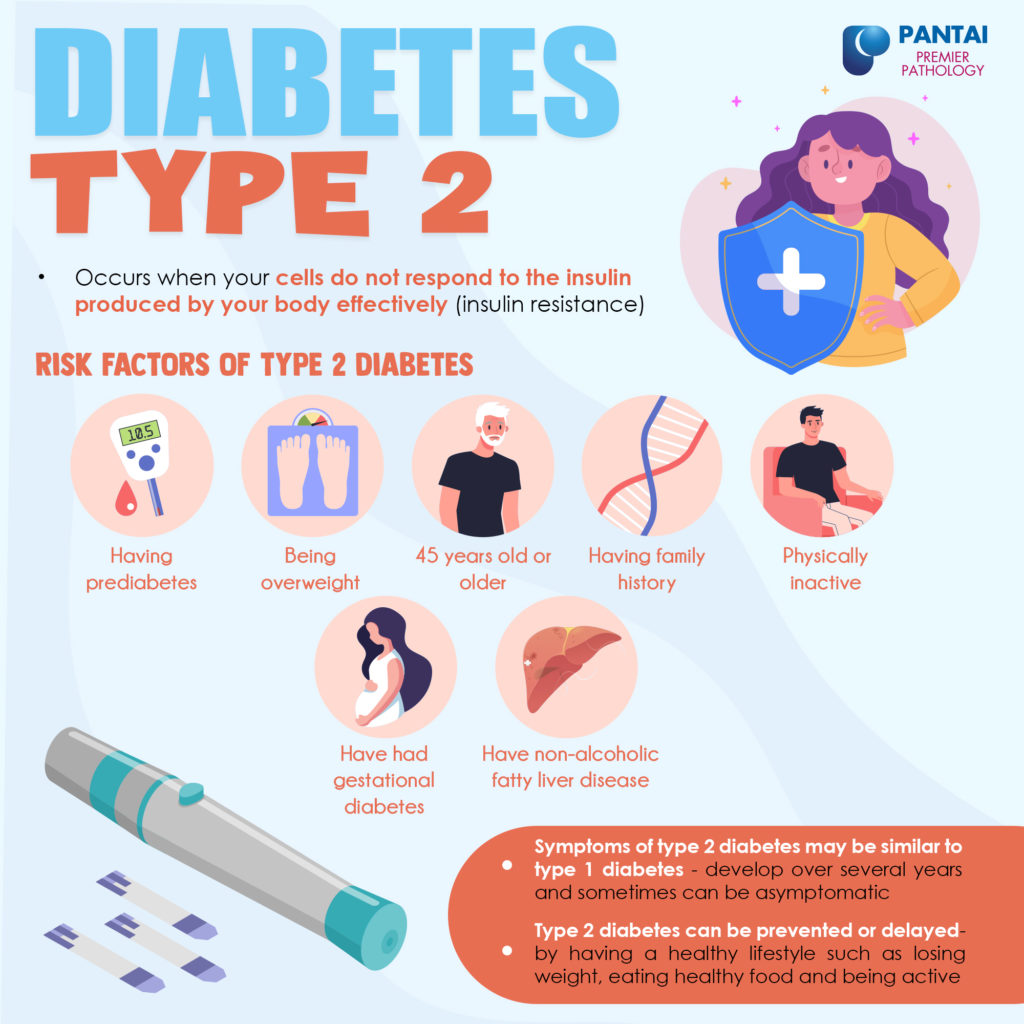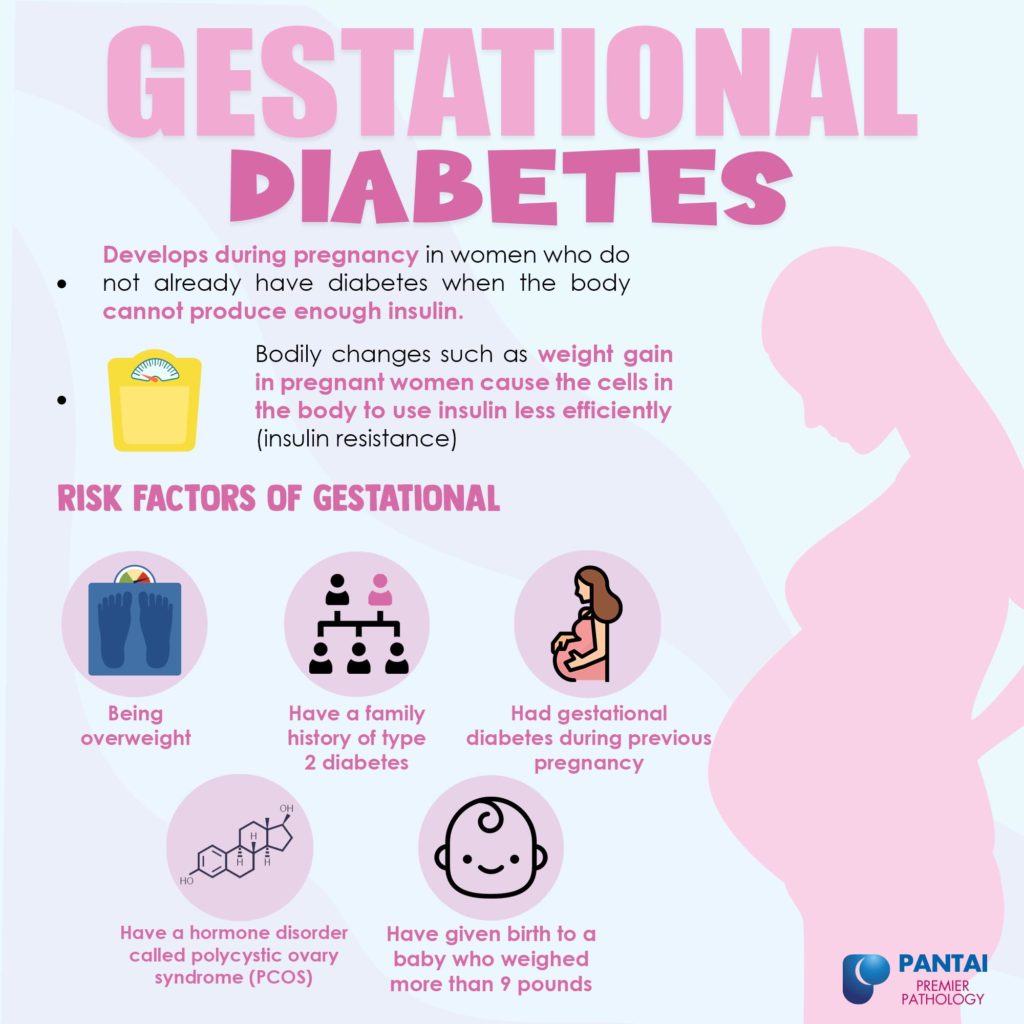Types of Diabetes | Causes, Risk Factors and Symptoms
Diabetes is a chronic disease which affects how your body converts food into energy.1 It is a condition when your blood sugar level is higher than normal.2 The three main types of diabetes are diabetes type 1, type 2 and gestational diabetes.1, 2, 3
The global prevalence of diabetes in 2014 is 8.5% among adults above 18 years old with an increase in the premature mortality rate by 5% between 2000 and 2016.3 In Malaysia, a survey has indicated that more than 3 million Malaysians suffer from diabetes.2
Most of the food you eat will be broken down into glucose and released into your bloodstream which will then be taken up by your cells to be used as fuel.3, 4 Insulin is a hormone produced in the pancreas to regulate your blood sugar level.3 It acts like a key which allows blood glucose to enter into your cells for use as energy.4 Diabetes occurs when the pancreas does not produce enough insulin or when the body is not able to use the insulin produced effectively, hence, unable to transport the glucose to the cells, leaving the amount of glucose in the blood raised.2, 3, 4
Hyperglycemia or raised blood glucose is a common result of uncontrolled diabetes where too much blood glucose stays in the bloodstream which overtime will lead to serious damage to many body systems, especially the nerves and blood vessels.3, 4
Diabetes Type 1
Type 1 diabetes is caused by an immune response (body attacks itself by mistake). This causes a deficiency in insulin production, hence, requires daily administration of insulin. The risk factors of type 1 diabetes includes having family history and age. You can get type 1 diabetes at any age, but more likely to develop it during childhood.2, 3, 5
Symptoms of type 1 diabetes may occur suddenly which includes excessive urination (polyuria), excessive thirst (polydipsia), constant hunger, weight loss, vision changes and fatigue.3 There is currently no known cure or prevention for type 1 diabetes.3, 5
Diabetes Type 2
Type 2 diabetes occurs when your cells do not respond to the insulin produced by your body effectively. This condition is called insulin resistance.3, 6 The risk factors of type 2 diabetes includes having prediabetes, being overweight, 45 years old or older, having family history, physically inactive, have had gestational diabetes and have non-alcoholic fatty liver disease.5
Symptoms of type 2 diabetes may be similar to type 1 diabetes which often develop over several years and sometimes can be asymptomatic. Therefore, it is important to know the risk factors and to consult your doctor to get your blood glucose level tested early before the onset of diabetes.2, 3, 6
Type 2 diabetes can be prevented or delayed by having a healthy lifestyle such as losing weight, eating healthy food and being active.4
Gestational Diabetes
Gestational diabetes develops during pregnancy in women who do not already have diabetes when the body cannot produce enough insulin.3, 7 A pregnant woman’s body goes through changes such as weight gain. These changes will cause the cells in the body to use insulin less efficiently (insulin resistance). Insulin resistance is common in pregnant women during late pregnancy, however, some women who develop insulin resistance even before getting pregnant will have an increased need for insulin during pregnancy, resulting in them to more likely have gestational diabetes.7 The risk factors of gestational diabetes are being overweight, have a family history of type 2 diabetes, have a hormone disorder called polycystic ovary syndrome (PCOS), had gestational diabetes during previous pregnancy and have given birth to a baby who weighed more than 9 pounds.5
The risk of complications during pregnancy and at delivery is high for women with gestational diabetes. These women and their children are more likely to have an increased risk of type 2 diabetes later in life.3, 5, 7 Hence, it is important to manage gestational diabetes to make sure you have a healthy pregnancy and a healthy baby.7
Gestational diabetes is commonly diagnosed through prenatal screening than through reported symptoms.3
What are the common screening tests for Diabetes?
- Glucose
- Glycated Haemoglobin (HbA1c)
For more information on the tests provided, please contact us at +603-42809115 (Customer Service) or email us at info@premierpathology.com.my
References:
- Diabetes Basics. (n.d.). Centers for Disease Control and Prevention. Retrieved October 28, 2020, from https://www.cdc.gov/diabetes/basics/index.html
- Ismail, D. F. (n.d.). Diabetes Mellitus. MyHealth Kementerian Kesihatan Malaysian. Retrieved October 28, 2020, from http://www.myhealth.gov.my/en/diabetes-mellitus-4-2/
- Diabetes. (n.d.). World Health Organization. Retrieved October 29, 2020, from https://www.who.int/news-room/fact-sheets/detail/diabetes
- What is Diabetes? (n.d.). Centers for Disease Control and Prevention. Retrieved October 28, 2020, from https://www.cdc.gov/diabetes/basics/diabetes.html
- Diabetes Risk Factors. (n.d.). Centers for Disease Control and Prevention. Retrieved November 4, 2020, from https://www.cdc.gov/diabetes/basics/risk-factors.html
- Type 2 Diabetes. (n.d.). Centers for Disease Control and Prevention. Retrieved November 4, 2020, from https://www.cdc.gov/diabetes/basics/type2.html
- Gestational Diabetes. (n.d.). Centers for Disease Control and Prevention. Retrieved November 5, 2020, from https://www.cdc.gov/diabetes/basics/gestational.html






